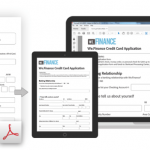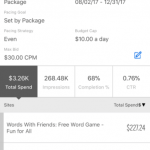Adobe Personalizes Voice
Adobe Personalizes Voice
by
Laurie Sullivan , Staff Writer @lauriesullivan, February 27, 2018
Speaking with Amazon Alexa and Google Assistant will begin to feel more like an interaction with a local grocery store clerk you might see weekly. On Tuesday, Adobe announced enhancements to deliver a more personalized voice experience through Adobe Experience Cloud.
The tools will enable consumers to interact with brands in the same way they engage with a local grocery store clerk or bank teller — only online.

“Imagine searching for a flight on an Amazon Echo device and finding the right one at the best price,” writes Kevin Lindsay, director of product marketing at Adobe, in a
post. “The travel brand you are engaging with has already connected the dots on the backend, and you can book instantly — followed by a travel confirmation sent directly to your smartphone.”
Analytics and audience insights support Adobe’s new feature, along with artificial intelligence that automates difficult processes and becomes an engine that makes decisions in the moment.
These capabilities in Adobe Target now enable brands to build relationships. Marketers are able to customize the experience by using their own data — from known tastes and preferences, to tapping existing information provided by the user. Adobe Analytics Cloud serves as the underlying insights platform here, capturing data from voice devices as well as other channels such as desktop web and mobile.
For example, brands can now offer retailers a specific “skill” through Adobe Target. Through reports, brands can see the features used most frequently, the various steps taken following each reaction, and the situations that cause people to drop off.
Voice assistants have become very popular and are available in a variety of hardware. By the end of the year, per Google, its Assistant will reach 95% of all eligible Android phones worldwide.
Google also announced deep-linking support for voice interactions earlier this week. The Assistant can use Actions to carry out specific intents within another Android app. For
example, SpotHero, which helps drivers find a parking spot through its app, links from their Action to their Android app after a user purchases a parking reservation. The Android app allows the user to see more details about the reservation or redeem their spot. The announcement was made at Mobile World Congress
As marketers or developers integrate these links in Action, it becomes easier, in theory, for users to find what they are looking for. This new feature will roll out over the coming weeks.
MediaPost.com: Search Marketing Daily
(33)













